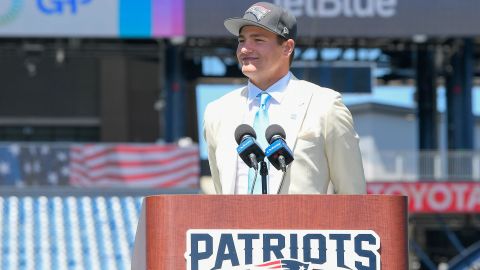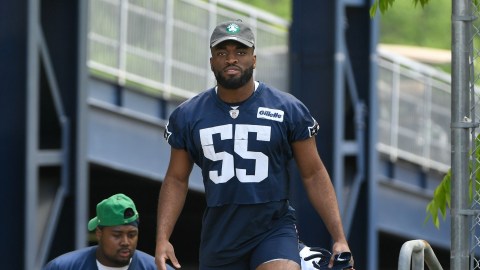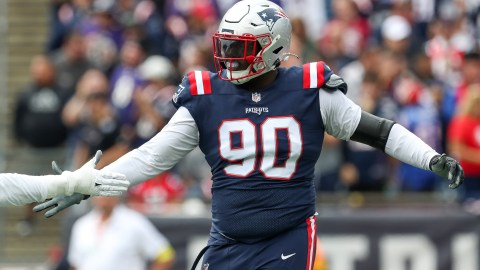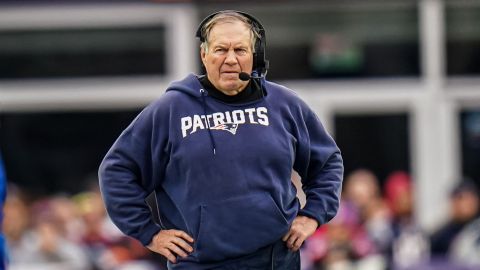An already dreadful day in Boston sports was made even worse as Matt Prater's 41-yard field goal darted just to the right before straightening out, handing the Patriots their second loss of the season.
Tom Brady never got to touch the football in the overtime period, which is sure to cause a stink throughout much of New England this week, but there's still no reason to change the overtime rules in football.
While both teams would have a shot to score in a magical world where everything is fair and everyone gets a chance, that doesn't happen in the NFL. In the NFL, football is played by a team made of three units: offense, defense and special teams.
A complete football team needs all three units operating at a high capacity to stay competitive. Whichever team best utilizes its three units typically wins the game.
So saying the Patriots didn't have a chance to score in overtime is simply false.
The Broncos took over after yet another mammoth kickoff from Stephen Gostkowski. With the Broncos taking over at their own 20-yard line, the odds were somewhat stacked against them. They would need to gain at least 45 yards to get into a comfortable range for a game-winning field goal.
That much turned out to be relatively easy, as the Broncos' only difficulty on the drive was a third-and-1 from the New England 48, converted on an eight-yard pass from Kyle Orton to Eddie Royal.
The Patriots then stopped the Broncos on the third-and-8 from their own 27-yard line, but an inexcusable error from Tully Banta-Cain, who lined up offsides, pushed the Broncos five yards closer for their game-winning field goal attempt.
The kick was, of course, good, and the Patriots' offense jogged off the field after possessing the ball for exactly zero seconds in overtime. But the Patriots wouldn't have even been in overtime if the offense had capitalized on its previous possessions. In the fourth quarter, the Patriots' drives ended with two punts, a fumble and a kneeldown.
"You can't win if you don't score any points in the second half," Brady said after the game. "I think that's what comes down to."
Had the Patriots moved the ball in the fourth quarter, they would have been rewarded with a win. Instead, they were forced into a sudden-death overtime, where they were ultimately overmatched.
"I don't think we're playing well enough here," Brady said. "We wait for things to bounce our way, but you have to go and make things happen.
"We left our defense out to dry as an offense," Brady added. "We didn't convert, [our defense was] on the field too long. Any time you do that against a good offense, they're going to move the ball, just because the defense gets worn down. … We squandered away some opportunities we had there in the second half.
"That's the outcome when you don't go out there and perform well. You get beat.
Head coach Bill Belichick had a similar thought process after the game, pinning the loss on the Patriots' lack of execution, not their lack of possession in overtime.
"[The] Broncos had a lot of possession passes that kept the chains moving," Belichick said. "They kept the yardage fairly short on third down. We had our chances on a couple when we had our hands on the ball but couldn't come up with it and we just have to make some of those plays. We didn't make them today."
In the overtime period, Brady didn't touch the ball, but he had a chance to. Had the defense made one stop, one play, it's a different story on Monday morning.
But this game is not called "offense." It's called football, and it's played by teams.
In football, the best team wins, and on Sunday, that team — without question — was Denver.



